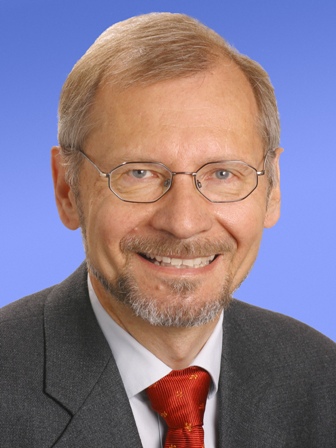 |
 |
|

Technical
Seminar
Double-Feature
Distinguished Lecturer Series |
 |
 |
|
|
|
Seminar 1: 3D Stacking of Silicon Chips |
|
|
Seminar 2: Energy Saving by Power
Electronics in Household and Car Applications |
|
|
DATE/TIME
Friday, March 5, 2010 (9:30am to 12:00pm) |
|
PLACE
AMD Fort Collins Campus (Fort
Collins, CO)
|
|
DIRECTIONS
|
|
From I-25, take Harmony Road Exit (Exit 265) westbound, and enter AMD
campus on right immediately following Harmony/Ziegler intersection.
AMD is located on the NW corner of Harmony Road and Ziegler Road.
Proceed to 3rd floor for escort to seminar auditorium. Non-AMD
employees: please arrive at 3:15pm for security sign-in and escort. |
|
COST
Free. As always, food &
drinks will be provided. |
|
RSVP
Send e-mail to
visvesh.sathe@amd.com. |
|
|
SEMINAR 1 ABSTRACT (3D Stacking of Silicon
Chips) |
|
In
this presentation, recent trends in the semiconductor industry are
highlighted tracking the transfer from Moore’s law-driven developments
in the 80s and 90s to the more recent ‘More than Moore’ hype. Becoming
more specific, different 3D integration trends are discussed including
fine- and coarse-pitch interchip vias for vertical chip stacks,
traditional bond wires on chipstacks, µ-Flip Chip, Molded Interconnect
Devices, bare dies in Printed Circuit Boards, and a few more. This talk
will discuss those topics and open up the discussion on their effect on
the value chain of the entire electronics industry. |
|
|
SEMINAR 2 ABSTRACT (Energy Saving by Power
Electronics in Household and Car Applications) |
|
Today, primary energy is
mostly produced by burning organic fossil resources such as oil, coal
and gas. The carbon dioxide produced in this process causes significant
warming of the world's climate leading among others to rising sea levels
and more extreme whether conditions. Worldwide awareness of this problem
has increased in the past decades. Almost 40% in primary energy were
saved in the EU alone since the 1980s. This achievement will not be
enough; more energy saving will be required in the decades to come. The
saving was not achieved by accepting reduced standards of living but
primarily by technical measures, and the same strategy is also planned
for the envisaged efforts. |
|
The EU addresses
various fields of energy consumption by issuing funded research
projects. Addressing the energy consumptions of household applications,
about 70 TWh per year can be saved using state-of-the-art power
electronic technologies. This is the power produced by
eight full-size power plants of the 1GW class.
Furthermore, the use of power electronics can lead to a reduction of
automobile CO2 emission from 170 to 140 g/km or in other
words to a gas mileage improvement from 32 to 36 mpg.
|
|
This
presentation will briefly introduce the political situation in Europe
and worldwide, and concentrate on the specific power device and module
technologies needed to significantly reduce electrical power
consumption. Loss in the energy distribution supply chain and both
standby and active mode operating conditions are addressed. Finally,
application examples are presented on how power electronics can increase
the efficiency of household appliances and cars. |
|
|
PRESENTATION SLIDES
Seminar 1 pdf
Seminar 2 pdf |
|
|
DR. WERNER WEBER (Infineon,
Munich, Germany)
|
 |
Werner Weber was born in Ruhstorf, Germany, in 1952. He
received the Dipl. Phys. degree from the Technische Universität München
in 1976 and the Dr. rer. nat. degree from the Ludwig-Maximilians-Universität
München in 1981. From 1981 he was on a one-year assignment at the IBM
Thomas J. Watson Research Center, Yorktown Heights, NY, where he worked
in the field of semiconductor thin films. 1983 through 2005 he was with
the Research Laboratories of Siemens AG and later Infineon Technologies,
both Munich, Germany. 1983 through 1998 he was engaged in MOS device
physics and basic circuit design and has managed projects on
technology-related circuits in advanced memories. From 1998-2005 he was
responsible for the Laboratory on Emerging Technologies at Infineon's
Corporate Research which addressed various topics in connection with
ambient intelligence such as wearable electronics, smart textiles,
ubiquitous sensor networks, and distributed low-cost electronics. |
|
Since 2005, he has been managing publicly funded research
projects on 3D integration and backend processing for automotive and
energy saving applications. Dr. Weber has authored or co-authored about
200 scientific papers, gave numerous invited presentations at
international conferences, and received various awards. In 2000 and
2001, respectively he received Certificates of Appreciation for his
editorial work for the Transactions on Electron Devices and as EDS VLSI
Technology & Circuits Committee Chair. Presently, he is active in the
executive committee of the IEDM.
He is a member of the German Physical Society (DPG) and a Fellow of the
IEEE. |
|
|